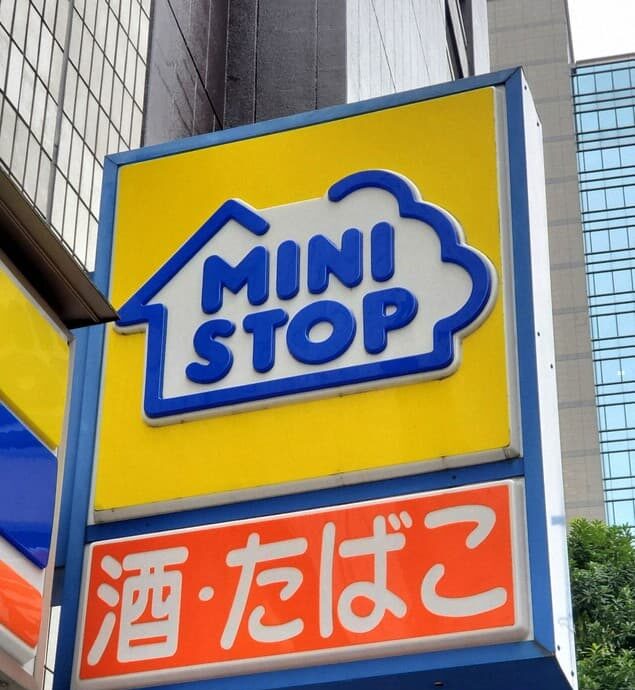A scandal that challenges trust in everyday food
Ministop, a well known Japanese convenience chain, is grappling with a food labeling breach that cuts to the core of customer trust. Staff at multiple locations faked expiration labels on handmade rice balls and other freshly prepared items, according to internal findings. The misconduct touched at least 25 stores in seven prefectures, prompting swift moves to halt production, investigate what went wrong, and penalize those responsible inside the franchise network.
The fallout is acute in Osaka Prefecture, where franchise owner Taruhito Nakamura, who ran six stores, has been told to end his contracts and pay more than 20 million yen in penalties tied to misconduct by employees at two of his shops. He says he did not know that staff were printing expiration stickers in bulk and applying them later, instead of labeling items when they were made. Nakamura, who supports a family of six, is negotiating with the company through a lawyer and has declined to sign a consent form that would finalize his contract terminations. He says bankruptcy may be his only option.
Ministop operates a nationwide network of more than 1,800 stores. The chain has built its identity around fresh, hot food prepared in store, a point of pride that magnifies the impact of a lapse in labeling accuracy. The company has said there have been no customer reports of illness linked to the mislabeled items, yet the discovery poses a clear risk to confidence in items that customers buy for convenience and safety.
Convenience stores are part of daily life in Japan. Many commuters pick up rice balls on the way to work, and families buy ready meals for busy evenings. When a breach concerns basic information, like whether an item is still safe to eat, it strikes at a routine that depends on predictability.
How the label fraud worked
Investigators found that some employees were making rice balls and deli items during late evening hours, then printing expiration labels all at once rather than at the moment each item was prepared. In some cases workers waited an hour or two before sticking labels on. A few items were even found with double labeled expiration stickers that hid the earlier time. The practice reportedly began about two and a half years ago at one store and spread through staff as a time saver. At another location, it started around January this year.
Food safety rules require labels to reflect when an item was actually made. That timestamp is not a formality. Fresh rice, fillings like tuna salad, and sauces have short safe windows at room temperature. Affixing a label later can create the impression of freshness even when the microbial clock is already ticking. The company said a product with double labeled dates in late June triggered closer checks, and the probe expanded from there.
An owner under pressure
Taruhito Nakamura’s story illustrates how franchise pressure can collide with food safety. He took on multiple locations after years working in supermarkets and convenience stores, drawn by the relatively low capital needed to join the chain. Over time, he accepted stores with weaker sales and found himself managing about 130 employees across six sites. Staff shortages meant he often worked the register and handled floor tasks himself, leaving little time for oversight in kitchens where label accuracy matters most.
Contracts for the two stores where the labeling fraud occurred were terminated by the end of September, and the remaining four were terminated by the end of October, according to Nakamura. Penalties assessed against him exceed 20 million yen. He says he is fighting to avoid being treated like someone who acted with intent. He also says he accepts responsibility for weak supervision, while insisting he did not direct staff to manipulate labels.
He voiced regret about the decisions that led him into this situation.
Nakamura said, in reflecting on his initial contracts, “I should not have agreed so easily.”
Nakamura used harsh language to describe the terms that bind him as a franchise owner, arguing that the obligations far exceed the support he receives from the system.
The Osaka owner described the agreements this way: “These feel like slave contracts.”
He says store advisers who are supposed to offer guidance and checks are themselves stretched thin. When advisers cover many locations, visits grow less frequent and less effective. Without steady oversight, shortcuts like bulk label printing can spread from one crew to the next as a kind of workplace habit.
What the company says and the fixes in motion
The company launched an emergency review after the first cases surfaced. It paused sales of handmade rice balls at most outlets in August, then extended the pause to other deli items while auditors examined preparation routines and labeling across the network. The company said it had not received reports of sickness from customers linked to the mislabeled products.
Executives issued a public apology aimed at the customers who rely on the chain for affordable, fresh meals.
The company said in a statement, “We sincerely apologize for the inconvenience caused to our customers.”
Ministop outlined several corrective steps. It reduced the number of handmade items to simplify operations. It pledged to decrease the number of stores handled by each adviser, with the goal of increasing direct support and inspections. Cameras were installed in kitchens to record key preparation steps. New label printers now stamp time and date in a way that cannot be edited later. Leaders also announced that handmade rice balls would return at select stores, with a plan to resume at 63 locations once safeguards are verified to be working.
Why expiration dates matter in Japan
Japanese food labels distinguish between expiration date and best before. Expiration date, called shohi kigen, marks the safe limit for items that spoil quickly, such as freshly made deli food. Best before, called shomi kikan, is a quality marker for items that are shelf stable, such as snacks and canned drinks. Handmade rice balls and similar in store items belong to the first category. They are made to be eaten the same day, often within hours, and regulations require accurate dating and timing on the label.
Even small shifts in time can change risk. Bacteria such as Bacillus cereus, which can grow in cooked rice, and Staphylococcus aureus can multiply if food sits too long in the danger zone. Proper holding temperatures, clean equipment, and precise labeling build a chain of safety. When one link breaks, for example when a label is applied long after production, the consumer loses a reliable cue for safety.
Japan’s Food Labeling Act and the Food Sanitation Act allow authorities to investigate stores that mislabel products. Health departments can order corrective action, require changes to in store preparation, and in serious cases ask operators to stop making certain products until fixes are in place. Franchise owners also face private contract penalties, which can be substantial, as seen in Nakamura’s case.
A business model under strain
Konbini culture depends on fast service, consistent quality, and constant availability. Larger chains can spread the cost of training and audits across more stores. Ministop has a smaller footprint and a distinctive profile built around fresh, hot food. That identity is attractive to customers but also raises the bar for standardization in kitchens staffed by rotating teams of part time workers. Each location must keep strict control over time, temperature, and labeling in a setting that is often short staffed.
Franchise owners carry the weight of scheduling, recruitment, vendor relations, and customer service. When a store runs with fewer hands, managers step in to fill shifts, which reduces the time available for compliance checks. A habit like printing labels in bulk can seem efficient during the night shift, yet it undercuts safety. Without frequent visits from advisers and audits that catch process drift, small local practices can morph into chain wide problems.
Nakamura’s account also points to an exhaustion problem. Advisers who are tasked with helping owners may have too many stores to cover. If each adviser can only visit sporadically, guidance turns into firefighting. That gap matters most in fresh food, where the margin for error is narrow and the cost of a single mistake is public trust.
Timeline of key events
The chain of events shows how a local practice became a national issue and how the company responded.
- Late June 2025: A product with double labeled expiration dates is found at a store, prompting checks.
- Early August 2025: Ministop pauses handmade rice balls at many outlets while it launches an emergency investigation.
- Mid August 2025: The pause is extended to other deli items as auditors expand the review.
- September 2025: Contracts for two Osaka area stores operated by Taruhito Nakamura are terminated following internal findings.
- October 2025: Contracts for four more stores run by Nakamura are ended. Penalties assessed to him exceed 20 million yen.
- November 2025: The company announces a plan to resume handmade rice ball sales at 63 stores after new controls are installed.
Consumer trust and early signs of recovery
Reputation in convenience retail is built on repetition. Customers buy a rice ball on the way to work because it is the same quality every time. A labeling breach shakes that habit, even when no illnesses occur. Recovery depends on visible changes that customers can notice. Cameras in kitchens, printers that hard code timestamps, and a slimmer menu of in store items give staff simpler, safer routines and give customers clearer signals of freshness.
Public reporting can help as well. Regular updates on how many stores have passed audits, how many are cleared to resume handmade items, and what criteria must be met show that the company is measuring what matters. Labels that display preparation time in bold, easy to read format can remove doubt at the shelf. Managers can also invite regional officials for surprise spot checks, pairing internal audits with outside eyes.
The human element will shape how quickly trust returns. Owners want support that is practical and frequent. If advisers cover fewer stores and visit more often, training and checks will happen closer to the cooking area. That lowers the chance that busy teams will adopt shortcuts when shifts are short staffed. A stable routine, enforced every day, is what brings confidence back to the counter.
Main Points
- Ministop identified falsified expiration labels at at least 25 stores across seven prefectures and paused handmade rice ball sales during an emergency review.
- Osaka franchise owner Taruhito Nakamura faces penalties of more than 20 million yen and the termination of contracts for his six stores.
- Staff at two of Nakamura’s stores printed expiration labels in batches and applied them later, and one case involved double labeled stickers.
- The company apologized to customers, reduced handmade items, installed cameras, deployed new label printers, and plans to resume handmade rice balls at 63 stores.
- No customer illnesses have been reported, but mislabeling violates Japanese food labeling rules and can trigger administrative action.
- Franchise pressures, staff shortages, and limited adviser support contributed to shortcuts that exposed strain in the business model.












